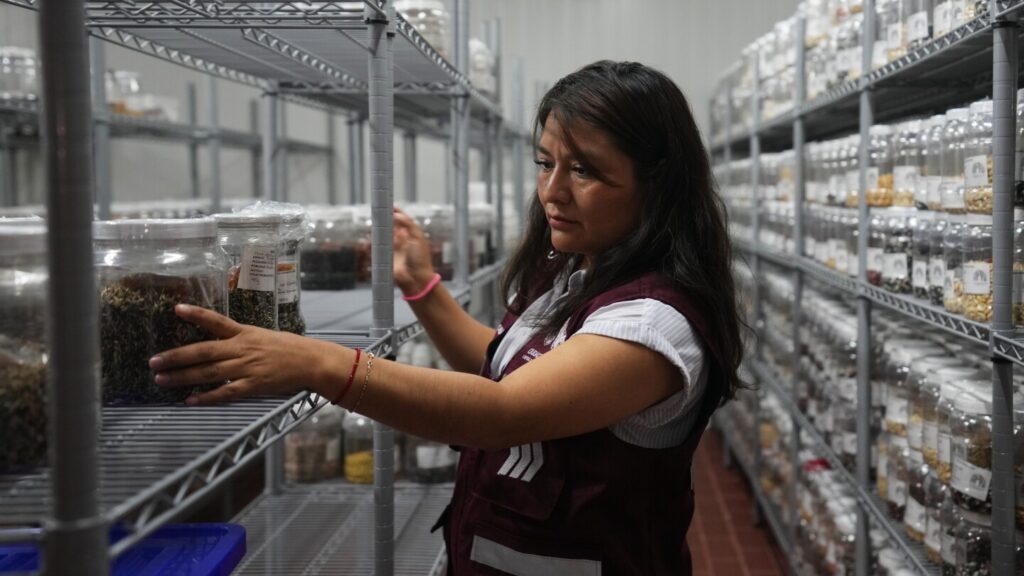The article discusses the challenges faced by cempastil flower farmers on the outskirts of Mexico City, who prepare for the annual Day of the Dead celebration. Cempastil, or Mexican marigold, is crucial to Mexican culture and economy, but farmers like Lucia Ortiz are grappling with significant losses due to climate change-related issues, including heavy rains and droughts.
Farmers report losing up to 50% of their crops, exacerbated by increased pests and diseases linked to extreme weather. Many have resorted to spending limited funds on pesticides and fertilizers while facing razor-thin profit margins. Despite the challenges, production of cempastil has surged to meet demand, with some farms breaking records in output.
Scientists are seeking long-term solutions, working to preserve heirloom seed varieties that are more resilient to climate fluctuations, as many farmers have shifted to hybrid seeds that lack genetic diversity. As the farmers strive to maintain their traditions amid financial hardships and environmental pressures, they face uncertainty about the future of their livelihoods. Local authorities are reportedly providing minimal support, leaving farmers like Ortiz contemplating alternative crops. They emphasize the cultural significance of cempastil, viewing it as more than just a plant but a link to their ancestors.
Source link


